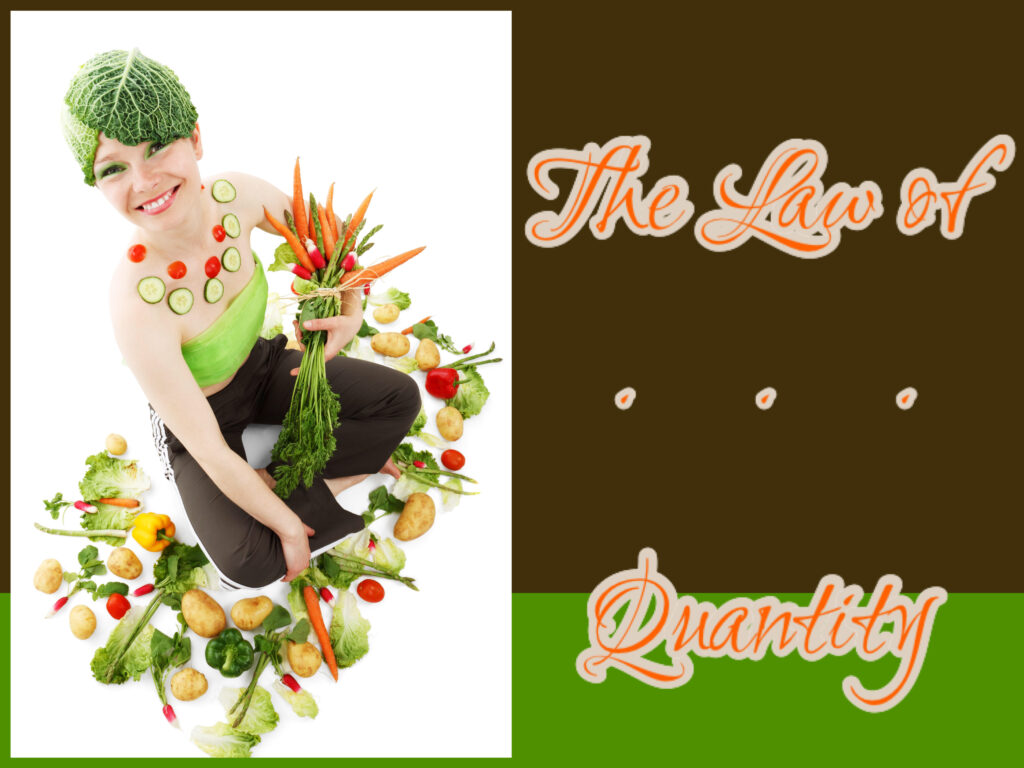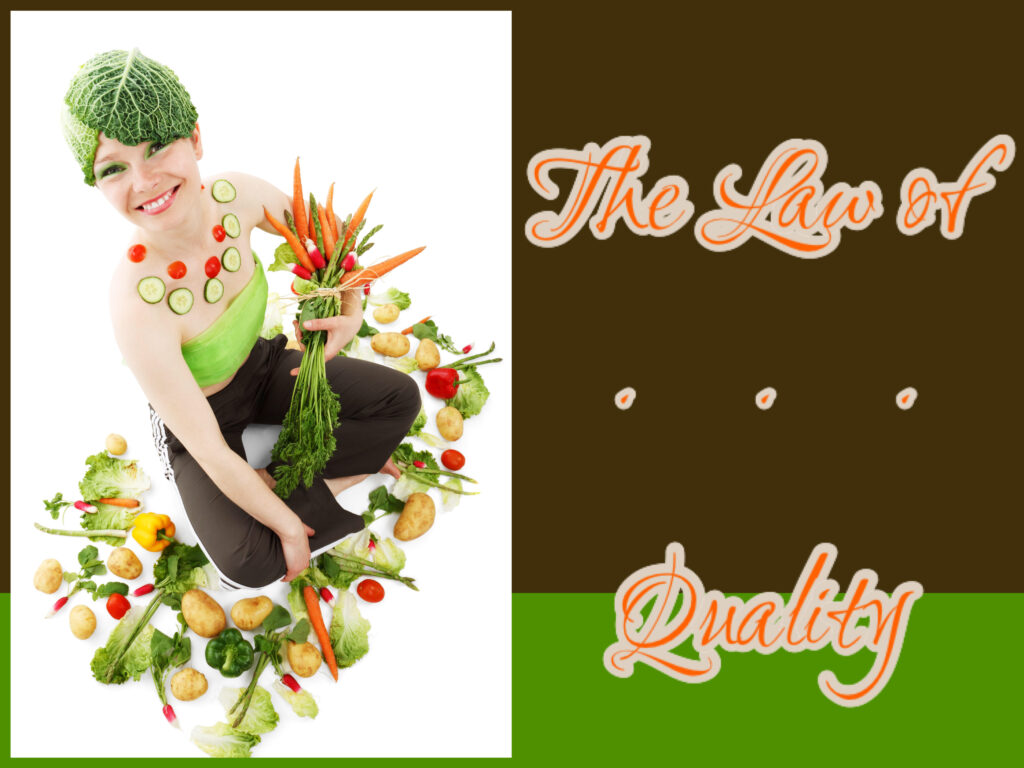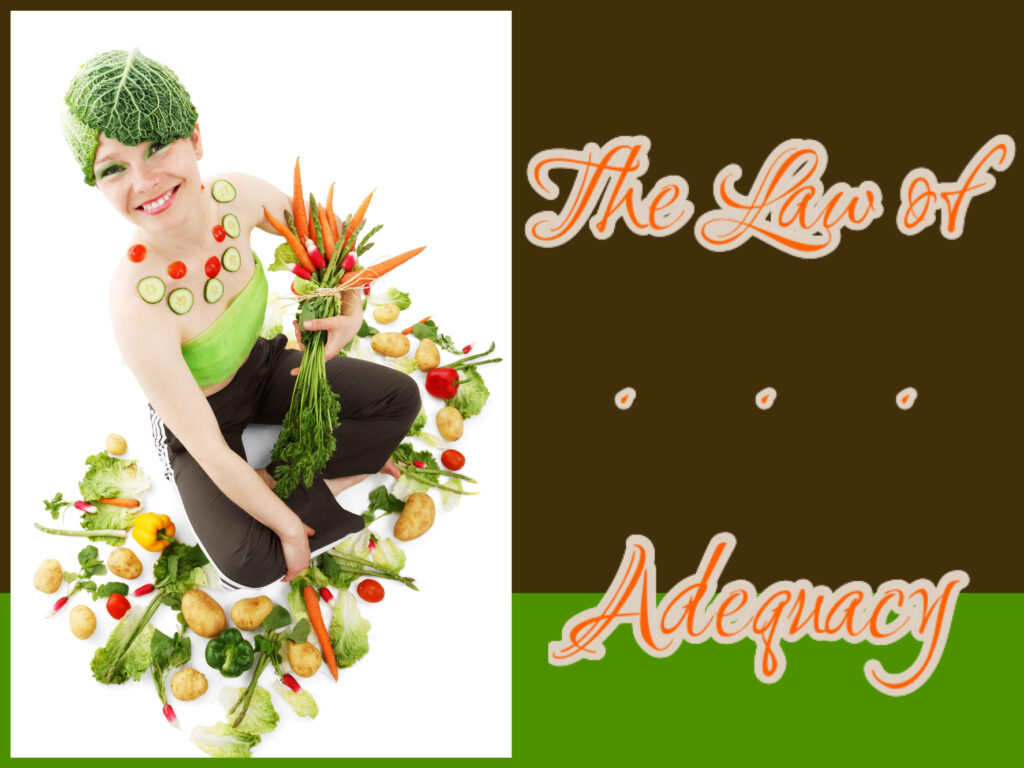Your diet is not only what you eat. It’s what you watch, what you listen to, what you read, the people you hang around… be mindful of the things you put into your body emotionally, spiritually, and physically.
– @tinybuddha (Twitter User)
You know what they say: you are what you eat! What we take in is ultimately what we become. Just as eating a constant flow of junk food is going to leave you feeling and looking poorly, so also will any constant flow of junk leave its negative mark on the mind. If your thoughts are junky, you are going to be left with junky feelings. If your feelings are junky, you are going to be left with junky behavior. If your behavior is junky, you are going to be left with a junky relationship with God and others. If your relationship with God and others is junky, you are going to be left with a junky life. Junk breeds junk. What you consume eventually consumes you. You are what you eat.
What are you consuming in your daily life? Let’s pretend your noggin is your tummy. Are you nourishing it? Is that noggin being filled with nutritious input that is serving to better your health? Are you filling up on nutrient-dense goodies, or nutrient-deficient garbage? Christian women are called to be sensible. (Titus 2:4) Being “sensible” (Greek = sophron) is to be “sane”, “self-controlled”, and of a “sound mind”. This places a heavy importance on the health and wellness of our thought lives.
Today, we will examine the “eating habits” of a well-nourished mind. I am going to be deriving my outline from “The Latin American Laws of Correct Nutrition” proposed by Dr. Pedro Escudero in 1935. Dr. Escudero’s proposal consists of four laws for healthy eating, which we will use to formulate a healthful “diet” for our minds. Law #1 is…

…which states that the amount of energy the body demands should be the amount consumed.
The amount of food should be sufficient to meet the caloric needs of the body and to maintain caloric balance. Caloric balance means that the amount of calories consumed during the day should be equal to those expended.
Any food regime that accomplishes this law is considered as sufficient. If it does not cover the caloric requirements for balance, it is insufficient, and if the intake exceeds the needs, it is considered excessive.
source: https://www.sciencedirect.com/science/article/pii/S0010482515004126#bib4
Physically speaking, we expend some energy each and every day. The amount of energy expended varies, however, and thus our caloric needs vary. (i.e. If you spend all day outdoors digging your garden, your body is going to demand a bigger meal than a day that you spend curled up on the couch with a book). On restful days, a light or even skipped meal might be appropriate. On busy days, a light or skipped meal might be foolhardy. We must take daily workloads into account to ensure a sufficient diet.
Throughout each day, we expend mental energy just as we do physical energy. Some days are stressful and taxing, others are peaceful and light. Our thought lives should reflect the mental energy expended.
- If you find yourself at odds with your husband, you must remind yourself of your place in the home and your irrevocable love for him. Pray for him. Read a past love letter he wrote for you. Brainstorm on ways you can serve him in a spirit of quiet gentility. The last thing you ought to do is to stew on negative thoughts, which only serve to give Satan a foothold in your marriage. Remember your vows and live them.
- If you have a stressful day with your kids, you must reinforce positive thoughts towards them in order to replace the mental energy you have exhausted. Pray for them. Watch a past video that makes you giggle. Soften your tone and your words towards them. Let no root of bitterness spring up within you. Remember your duty and fulfill it.
- If you have been mistreated by a friend, you must soften your heart and choose higher ground. Pray for her. Examine yourself to be sure you are not a root cause of the issue. Either accept her flaws or gracefully bow out of the relationship…forgive her either way. Don’t stoop to low behavior, keep your dignity always intact. Remember your light and show it.
We do not have an endless supply of energy in the noggin any more than we do in the tummy. We must replenish our mental energy with a sufficient amount of healthy input. When you are weary: pray, remember the easy days to get you through the hard ones, and continue to serve others (which has the uncanny ability to fill up a depleted spirit). You are what you eat, so make sure your mind consumes a healthy quantity daily.
Feed me with the food that is my portion… – Proverbs 30:8b
Who then is the faithful and sensible slave whom his master put in charge of his household to give them their food at the proper time? Blessed is that slave whom his master finds so doing when he comes. – Matthew 24:45
Ask yourself: what is the proper quantity for me?
Law # 2 is…

…which states foods from all the food groups should be consumed.
A diet should be complete in composition to provide the body, which is an indivisible unit, with all substances that integrate it. This Law states that ingested food must contain nutrients of each food group.
source: https://www.sciencedirect.com/science/article/pii/S0010482515004126#bib4
Physically speaking, a quality body is attained through quality sustenance. Our bodies require a steady flow of vitamins and minerals to work efficiently. The previous nutritional law focused on getting the right amount of food, this law focuses simply on getting the right food. Food that is truly quality must be nutritious.
Every day, we have a choice in what our mind consumes. Will we consume junk food, or incorporate a nourishing diet? What will be the quality of our entertainment, our interactions, and our thought lives? Titus 2:4-5 lays out the God-breathed, quality diet for a woman’s nutritional needs. Consume these 7 “foods” to be one healthy lady:
- Husband-loving is nutritious to a woman’s spirit. Are you consuming that which will help you to love your husband? (i.e. thinking well of him, bragging on him, desiring him above all others)
- Children-loving is nutritious to a woman’s spirit. Are you consuming that which will help you to love your children? (i.e. training them, teaching them, patiently disciplining and discipling them)
- Sensibility is nutritious to a woman’s spirit. Are you consuming that which will help you to be sensible? (i.e. cultivating positive thoughts, rejecting foolish emotions, grounding yourself in truth)
- Purity is nutritious to a woman’s spirit. Are you consuming that which will help you to be pure? (i.e. reading/watching wholesome content, refraining from the rabbit hole of worldly curiosities, delighting in life’s innocent pleasures)
- Home-working is nutritious to a woman’s spirit. Are you consuming that which will help you to work at home? (i.e. stretching your husband’s paycheck, denying any tendency toward laziness, honing your womanly skills)
- Kindness is nutritious to a woman’s spirit. Are you consuming that which will help you to be kind? (i.e. speaking in gentle tones, considering others better than yourself, exhibiting a calm composure to those who treat you with contempt)
- Husband-subjecting is nutritious to a woman’s spirit. Are you consuming that which will help you to subject to your husband? (i.e. learning what pleases him, adapting to him, deferring to him in all things?)
The books you read, the shows you watch, the music you listen to, the social media you scroll, the thoughts you think, the friends you count…all of these are shaping your mind to either become better or worse in these 7 characteristics. If that book, show, music, social media, thought, friend, etc. is not helping you to love your husband and children, to be sensible, pure, and kind, to work at home, and to subject yourself to your husband? Then it’s not healthy for you…it needs to go. You are what you eat, so make sure your mind consumes a healthy quality daily.
The good man out of the good treasure of his heart brings forth what is good; and the evil man out of the evil treasure brings forth what is evil; for his mouth speaks from that which fills his heart. – Luke 6:45
For where your treasure is, there your heart will be also. – Luke 12:34
Ask yourself: what is the proper quality for me?
Law # 3 is…

…which highlights the need to keep a proper relation between the distributions of ingested nutrients.
The amounts of the various nutritional principles that integrate diet must maintain a relation of proportions between themselves. … Recommended intakes of the amounts of macronutrients may vary depending on the country or the approach followed by nutrition scientists, so the following distribution is proposed: 50-70% carbohydrates, 10-20% proteins, and 20-35% fats.
Any diet that fulfills this Law is considered harmonic or, more commonly, balanced. If the nutritional principles do not keep this proportionality, it is a disharmonic or unbalanced diet.
source: https://www.sciencedirect.com/science/article/pii/S0010482515004126#bib4
Physically speaking, we ought to consume a balanced variety of healthful foods each day. Too much of one food group and too little of another leads to nutritional deficiency. The previous nutritional laws focused on getting the right amount of food and the right food. This law focuses on getting the right combination of food.
Putting all our eggs in one basket (pardon the food pun) disadvantages the body and the mind alike. For example, carrots and bananas are both healthful food choices, but pursuing a diet of only carrots or only bananas is unbalanced and will leave you lacking in many of the vitamins and minerals your body needs. We want a harmonious diet for our bodies, and so too do we want a harmonious diet for our minds.
- Reading your Bible is a good thing. However, if you are so consumed with your Bible reading that you neglect to serve others, you have become unbalanced. Read your Bible, but not to the neglect of service.
- Playing with your children is a good thing. However, if you are so consumed with playing with your children that you neglect your marriage, you have become unbalanced. Play with your children, but not to the neglect of your husband.
- Cleaning your house is a good thing. However, if you are so consumed with your housework that you neglect family time, you have become unbalanced. Clean your house, but not to the neglect of your loved ones.
A moderate lifestyle is key to a joyful existence. Fill your mind with a variety of healthy input; not too much of one thing and not too little of another. Keep your brain firing on all cylinders – learn how to love God and your husband more perfectly, learn how to be a better parent, learn to improve your homemaking skills – keep all of your duties in balance for a healthy, harmonious mind. You are what you eat, so make sure your mind consumes a healthy harmony daily.
Have you found honey? Eat only what you need, that you not have it in excess and vomit it. – Proverbs 25:16
Finally, brethren, whatever is true, whatever is noble, whatever is right, whatever is pure, whatever is lovely, whatever is of good repute, if there is any excellence and if anything worthy of praise, dwell on these things. – Philippians 4:8
Ask yourself: what is the proper harmony for me?
Law #4 is…

…which insists on adapting diet to the nutritional, social, and psychological needs of individuals.
The purpose of a diet depends on the needs of a particular user. The Law of Adequacy states that the ingested nutrients should be appropriate to the age, physical activity and physiological state of the individual.
When a diet meets these requirements, it is said to be adequate. When it is not fulfilled, the diet regimen is inadequate and unsuitable.
source: https://www.sciencedirect.com/science/article/pii/S0010482515004126#bib4
Physically speaking, a heavy, inactive, older individual and a lighter, active, younger individual should not be eating the same amount of food every day (as a general rule). It’s to the detriment of our society’s health that many eat to their heart’s content with no consideration of what is truly needful for them. A severe lack of self-control has led to an obesity epidemic, and those who are fit and eat modestly are becoming quite a rare sight. (On the other extreme, there are those who struggle with anorexia, or not eating enough food to meet their nutritional needs. However, one public outing in today’s world will reveal that obesity is the extreme far more common than that of anorexia.) Neither extreme is good.
Our minds should be neither starving for input, nor drunken on input. The anorexic mind and the obese mind are both unsightly and reveal an underlying health problem. We should seek to have an adequate diet for our mind; taking our own personal life reality into account.
- A single woman would do well to invest some time into learning about how to be a loving, obedient wife (if marriage is on her agenda). To invest little to no time into learning about marriage is neglectful, for she will find herself unprepared and unequal to the task of being a wife should she become married. To invest the majority of her time into learning about marriage is obsessive, for she is not cultivating herself in other ways should a suitor never come calling for her.
- A married woman would do well to invest some time into learning about how to be a caring, nurturing mother (if motherhood is on her agenda). To invest little to no time into learning about parenting is neglectful, for she will find herself unprepared and unequal to the task of being a mother should she become pregnant/adopt. To invest the majority of her time into learning about parenting is obsessive, for she is not cultivating herself in other ways should a cradle never be filled for her.
Godliness with contentment is great gain. Don’t reach for more or less than what is fit for your present station in life. Don’t starve yourself of knowledge, but don’t glut out on it either. Your unique needs and lifestyle may not look just like someone else’s, and that’s okay. You are what you eat, so make sure your mind consumes a healthy adequacy daily.
I gave you milk to drink, not solid food; for you were not yet able to receive it. – 1 Corinthians 1:2
O Lord, my heart is not proud, nor my eyes haughty; nor do I involve myself in great matters, or in things too difficult for me. – Psalms 131:1
Ask yourself: what is the proper adequacy for me?
In conclusion…
Are you nourishing your noggin with “food” that is the proper quantity, quality, harmony, and adequacy? Healthy food is essential to a healthy body. Likewise, healthy input is essential to a healthy mind. Your books, your shows, your music, your social media, your thoughts, your relationships…everything you allow into your mind is shaping you for better or for worse.
The food you eat can be either the safest and most powerful form of medicine or the slowest form of poison.
– Ann Wigmore
What you consume eventually consumes you. I exhort you to choose food that is good for you, because you are what you eat.
For God’s glory,
Mrs. Dustin Bolks
Chaste Bolks is a church of Christ preacher’s wife, and the home educating mother of two children. She and her family currently reside in Northwest Iowa.

